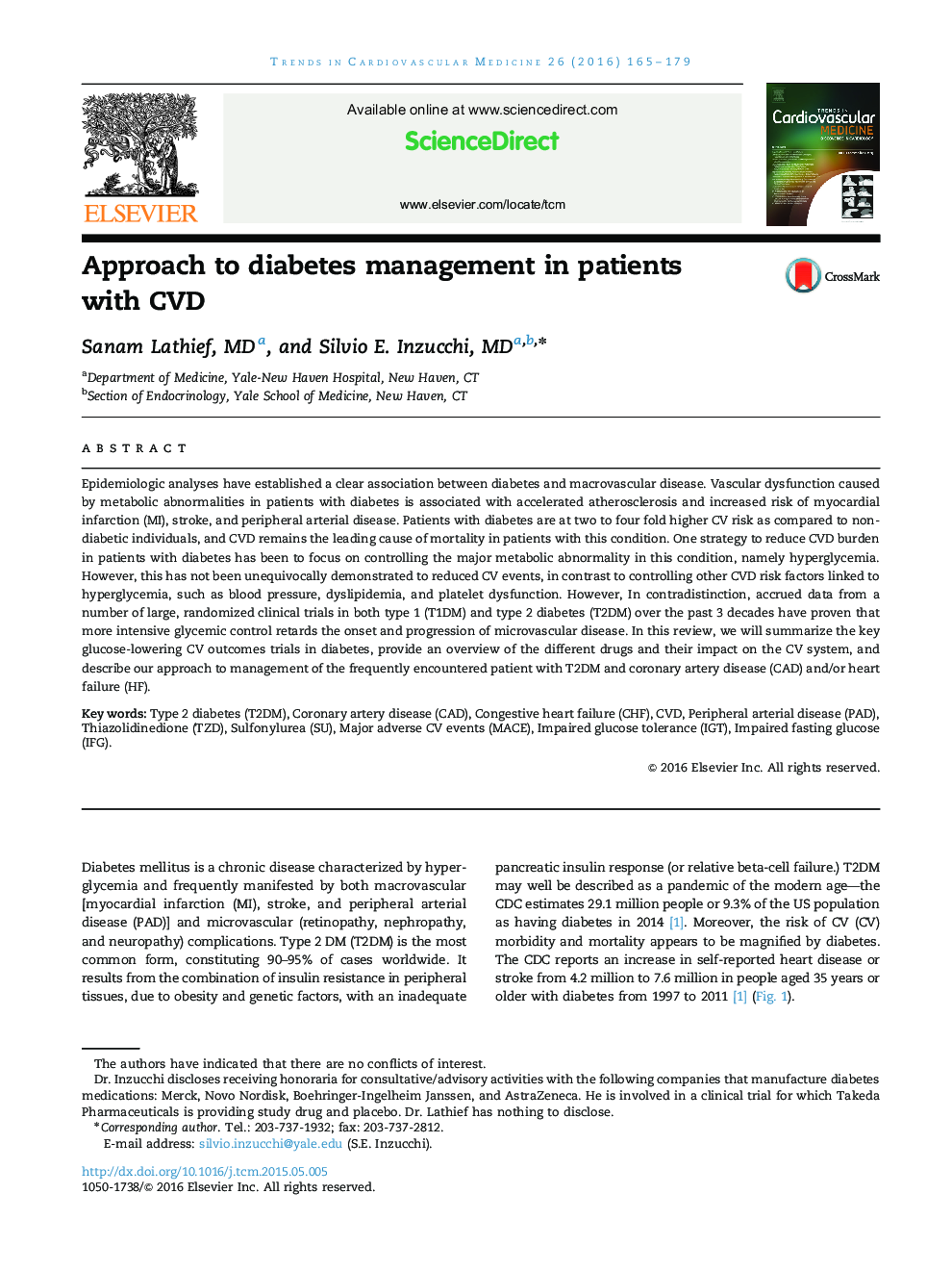| Article ID | Journal | Published Year | Pages | File Type |
|---|---|---|---|---|
| 3031631 | Trends in Cardiovascular Medicine | 2016 | 15 Pages |
Epidemiologic analyses have established a clear association between diabetes and macrovascular disease. Vascular dysfunction caused by metabolic abnormalities in patients with diabetes is associated with accelerated atherosclerosis and increased risk of myocardial infarction (MI), stroke, and peripheral arterial disease. Patients with diabetes are at two to four fold higher CV risk as compared to non-diabetic individuals, and CVD remains the leading cause of mortality in patients with this condition. One strategy to reduce CVD burden in patients with diabetes has been to focus on controlling the major metabolic abnormality in this condition, namely hyperglycemia. However, this has not been unequivocally demonstrated to reduced CV events, in contrast to controlling other CVD risk factors linked to hyperglycemia, such as blood pressure, dyslipidemia, and platelet dysfunction. However, In contradistinction, accrued data from a number of large, randomized clinical trials in both type 1 (T1DM) and type 2 diabetes (T2DM) over the past 3 decades have proven that more intensive glycemic control retards the onset and progression of microvascular disease. In this review, we will summarize the key glucose-lowering CV outcomes trials in diabetes, provide an overview of the different drugs and their impact on the CV system, and describe our approach to management of the frequently encountered patient with T2DM and coronary artery disease (CAD) and/or heart failure (HF).
